Real Estate Investing Terms to Know; Interim Occupancy and Final Closing
Interim Occupancy and Final Closing
Real Estate Investment Terms to Know
The world of real estate can be complex and full of specialized terms that may not seem familiar, but to understand the process it’s important to know your terminology. This blog post will help by breaking down two key concepts when dealing with pre-construction properties; interim occupancy and final closing. Whether you're a first-time home buyer or looking for an investment opportunity, these important phases are crucial for understanding the nature of negotiating, building, and closing on your property. Keeping informed allows for more successful ventures into pre-construction housing so learning about topics like interim occupancy and final closing is essential!
What are Interim Occupancy and Final Closing in pre-construction
In Canadian real estate, pre-construction condo investments have become increasingly popular in recent years. For those considering this type of investment, it's important to understand the concept of interim occupancy and final closing. Interim occupancy refers to the period of time between when a unit is ready for occupancy and when the title is transferred to the purchaser. During this time, the owner will pay the builder a monthly occupancy fee and will not yet own the property. The final closing is the process of transferring legal ownership of the property from the builder to the owner. Understanding these terms and the associated timeline is crucial to making an informed decision when considering pre-construction condo investments in the Canadian real estate market.
Important things to consider when signing an agreement for Interim Occupancy or Final Closing
Before signing an agreement for interim occupancy or final closing, it's crucial to consider a few essential factors. First and foremost, familiarize yourself with the provincial law and regulations that govern the real estate industry. This will help you make informed decisions and avoid potential legal issues. Additionally, if you're buying a condo as an investment, you should carefully review the agreement's terms and conditions to ensure that it aligns with your investment goals. Consider factors like resale potential, rental income, and vacancy rates to gauge the property's profitability in the long run. All in all, taking the time to carefully consider these important factors will help you avoid costly mistakes and ensure that your investment is a success.
Benefits of purchasing a pre-construction property with Interim Occupancy and Final Closing
Investing in pre-construction properties with Interim Occupancy and Final Closing could provide great advantages for potential homeowners. These properties, particularly condos, offer great value for money, and typically cost less than finished units in the same building. With this kind of investment, prospective buyers can customize and personalize their homes to their unique taste and preferences, with the freedom to choose everything from appliances to flooring and paint. Interim Occupancy gives buyers early access to their homes, so they can move in and start paying their mortgage sooner rather than later. In addition, buying pre-construction properties means that buyers can benefit from appreciation in the value of their home, which is particularly beneficial in the long term. By purchasing a pre-construction property with Interim Occupancy and Final Closing, homeowners can take advantage of great potential returns in the property market.
Common Misconceptions about Interim Occupancy and Final Closing
When it comes to buying a condo in a pre-construction phase, there are a few misconceptions that can lead to confusion and even frustration. One of the most common misunderstandings is around interim occupancy and final closing. Interim occupancy is when you are allowed to move into your unit before the official closing, but you are not yet the legal owner of the property. Many people assume that they will be paying their mortgage during this period, but that's not the case. Instead, you will be paying an occupancy fee, which typically includes things like maintenance fees, taxes, and interest on the outstanding balance. Final closing, on the other hand, is when you become the legal owner of the property and the mortgage payments kick in. Knowing these differences and understanding the details of your occupancy agreement is crucial before signing on the dotted line.
Tax implications of purchasing a pre-construction property with Interim Occupancy and Final Closing
If you're considering purchasing a pre-construction condo in the real estate market, there are a few tax implications that you need to take into account, especially when it comes to interim occupancy and final closing. The interim occupancy period is the time between when the condo is ready for occupancy and when you actually take possession of the unit. During this time, you will be required to pay an occupancy fee, which is essentially the equivalent of rent. It's important to note that this occupancy fee is not considered mortgage interest and therefore, cannot be claimed on your income tax return. Further, keep in mind that once the condo is fully built and ready for closing, you will need to pay the balance of the purchase price, and at that point, you will be responsible for paying land transfer taxes and other closing costs. Understanding the tax implications of purchasing a pre-construction condo with interim occupancy and final closing is crucial to ensuring that you are financially prepared for all the costs associated with this investment.
Buying a condo in pre-construction can be an exciting experience, but it's important to understand the interim occupancy and final closing processes before making your purchase. Interim occupancy is the period of time between when your unit is ready for occupancy and when the entire building is registered. During this time, you will pay occupancy fees and won't own your unit yet. Final closing happens when the entire building is registered, and you will obtain legal title to your unit. It's important to know that the closing date may be subject to change due to delays in construction or registration. Understanding these processes is crucial to ensure a successful real estate purchase.



